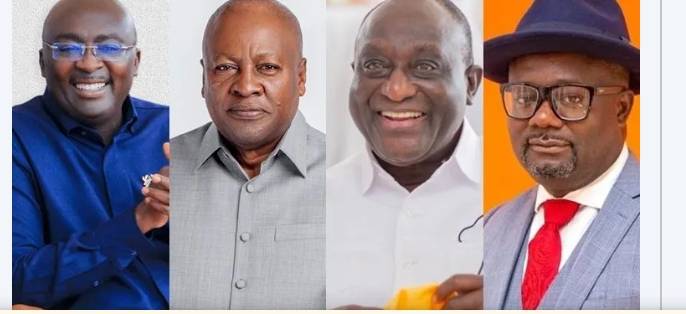As Ghana heads to the polls this Saturday, widespread frustration over economic challenges, rising costs, and unemployment has cast a shadow over the nation’s political landscape. The upcoming general election will not only decide the presidency but also test the resilience of Ghana’s democratic values amidst growing public discontent.
The second term of President Nana Akufo-Addo and his ruling New Patriotic Party (NPP) has been marked by a significant decline in popularity. Once a symbol of hope, the administration now faces criticism for what is being called the country's worst economic crisis in a generation. Inflation soaring above 50%, a struggling cocoa and gold sector, and nationwide cost-of-living protests have eroded public trust in the government. These factors have seemingly paved the way for the opposition, led by John Dramani Mahama of the National Democratic Congress (NDC), to gain momentum.
Recent polls reflect the shifting tide, with many predicting a strong showing for Mahama and the NDC. Yet, the enthusiasm for change is tempered by widespread voter skepticism. “The country is ruined. I will vote, but I don’t think it will change anything,†said Emmanuel Kwaku Jr., an 18-year-old casting his first ballot. Such sentiments underscore the deep frustration felt by many Ghanaians, particularly the youth.
A survey conducted in October by Afrobarometer revealed that 82% of Ghanaians believe the country is headed in the wrong direction. Less than half of those surveyed expressed optimism about improvements in the coming year. “We have the trappings of democracy: elections every four years. Yet the dividends are low,†observed Abena Tekyiwaa Manuh, a senior fellow at the Accra-based Centre for Democratic Governance. “That’s dangerous.â€
Ghana’s democratic traditions, including adherence to two-term presidential limits and peaceful transfers of power, have earned it a reputation as a beacon of stability in a region often marred by coups and political turmoil. However, the challenges facing the country have raised concerns about the fragility of this stability. Observers worry that failure to address the frustrations of Ghana's largely youthful population could lead to broader questions about the effectiveness of democracy itself.
As the election draws near, twelve candidates are vying for the presidency. The race is widely seen as a contest between Mahama and Vice President Mahamudu Bawumia of the ruling NPP. Both have promised to address the economic instability that has plagued the nation since 2020. This includes tackling inflation, managing a $3 billion bailout from the International Monetary Fund, and restructuring Ghana’s mounting debts.
Polling stations will open at 7:00 AM and close at 5:00 PM for the country’s 18.7 million registered voters. Results for the parliamentary elections are expected by early Monday, while the presidential results could be announced by Tuesday. Historically, trends from early results have often pointed to the eventual winner. However, this year’s elections come with heightened tensions and low trust in institutions, particularly the Electoral Commission. Opposition leaders, including Mahama, have raised concerns about alleged voter roll irregularities, questioning the commission’s capacity to deliver credible results.
The EU delegation in Ghana has acknowledged these tensions, with Jonas Claes, the group’s elections lead, describing the results announcement period as a “tricky phase.†Claes highlighted the potential for unrest due to mistrust in the process, though he added that widespread violence is unlikely. “I don’t think widespread violence is to be expected, but it’s difficult to be 100% sure,†he said.
Mahama and the NDC have preemptively cast doubt on the commission’s neutrality, suggesting they may reject the results if they are unfavorable. Meanwhile, Bawumia and the NPP accuse the opposition of preparing the ground for contesting the election results. These mutual allegations have only added to the uncertainty surrounding the election.
The stakes are high. The winning candidate will need to act swiftly to fulfill campaign promises and address the pressing needs of Ghanaians. Failure to do so risks deepening public disillusionment, particularly among the youth. As one Western diplomat noted, “We see a lot of anger among the youth, a sense of hopelessness but also a sense of change. If that doesn’t happen at the elections, what will happen?â€
Despite the challenges, Ghana’s election represents a critical moment for its democracy. The country’s ability to navigate this period of economic and political uncertainty will determine not just its immediate future but also its long-term stability as a democratic nation.




No comments yet
Be the first to share your thoughts!